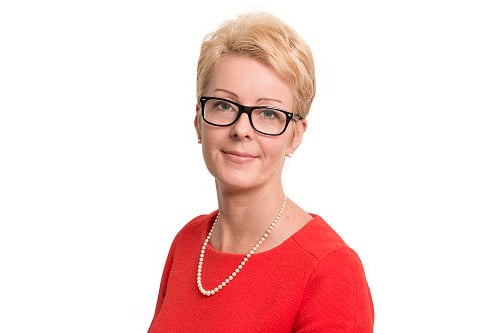

When I first sat down to write this month’s article I was going to take it down a COVID-19 route. “You’re on mute” is a phase that is now all too familiar as we adapt to the new ways of working remotely using technology such as Zoom and Teams. However, after I had pondered it for a while, I decided that I would explore this phrase through a different lens; one that is closely aligned with the work that I am involved in through my membership of the Lloyd’s Cultural Advisory Group (CAG).
The CAG was convened to deliver the actions agreed by the Lloyd’s Board and Council to improve the culture of the Lloyd’s/London market. This was in response to the issues that were surfaced last year in the Bloomberg article and further reinforced through Lloyd’s’ cross market cultural survey. It is also now looking at the issues raised by our Black and Ethnic Minority colleagues following the tragic death of George Floyd back in May, and the rise of the Black Lives Matter movement. It feels like we have finally pressed the “un-mute” button on all of the groups around the market who, prior to these events, did not necessarily feel that their voices were being heard.
This all feels very encouraging, and it is, but there are still some hurdles for us to overcome if we want to get past the stage of just “un-muting” these groups.
We are all united around the CAG and the London Market Group table on the importance of data to the success of our market. Traditionally we have always thought of data in the context of broking, underwriting and claims, but increasingly we are seeing the importance of data from a workforce perspective too.
There is an enormous amount of good work that is happening in the market, and anecdotally we hear that things are changing slowly, but it has always been notoriously difficult to get hold of data to corroborate this. Equally, we have also struggled to surface data that allows us to measure the scale of the imbalances that still exist in our market.
In my naivety I always imagined that the lack of workforce data was almost exclusively down to firms either not collecting it or storing it in such a way that it is impossible to pull out any meaningful MI. In some respects this holds true; however, one of my fellow CAG members, John Amaechi, brought a whole new perspective to it, particularly in relation to data around ethnic groups.
In my position as a white privileged female I have never before considered “trust” when answering questions about my ethnic group, but this does not hold true for others. I merrily type white, female, British without a second thought, whereas others “prefer not to say”. There is a generational dimension to this, but fundamentally we have created an environment where people effectively decline to disclose their ethnic group because they do not trust how this data will be used.
I feel ill-equipped myself to answer the question “how do we resolve trust in this context” but resolve it we must. It is certainly something that we will be looking into more deeply at the CAG so that we can issue some guidance. As to the broader issues around data collection; every firm in the market needs to examine what and how they collect their workforce data and take steps to fill any gaps. We all need to be in a position to determine if the initiatives that we are putting in place are achieving the desired changes, and for this we must know where we are, as well as where we want to get to and how far along the journey we are at a given point in the future. And that goes for all of the truth points that indicate how the culture of our market is changing.
